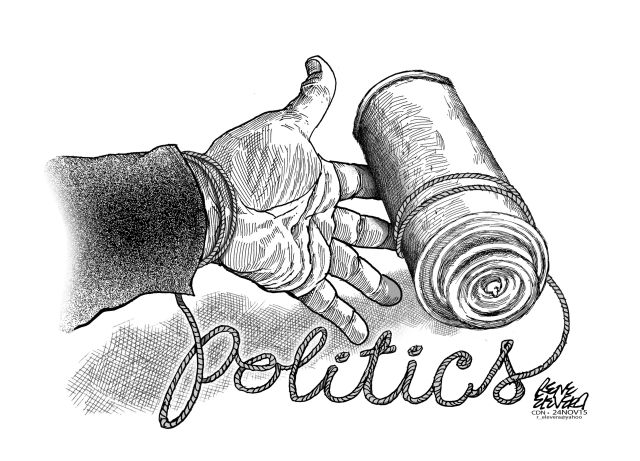What was supposed to be a simple, straightforward campaign to eliminate the use of refilled butane canisters became politicized when the cans were plastered with campaign slogans.
The discovery of some butane canisters refilled with LPG gas bearing the campaign slogan “Type O” caused mayoral candidate Tomas Osmeña to call for a press conference and criticized his successor, Cebu City Mayor Michael Rama.
Osmeña questioned the mayor’s decision to crack down on stations selling refilled butane canisters.
Rather than solve the problem, Osmeña warned that mass confiscation would worsen the situation and force operators to go underground and still sell the cheap cooking fuel.
So who’s in charge of enforcing the law?
The task force formed after a recent explosion of a home-based operator that injured eight of her workers is supposed to be headed by Councilor Dave Tumulak.
Will it succeed?
It depends on political will.
A directive of the Department of Energy (DOE) already bars the sale, distribution and use of “single trip” or disposable units like butane canisters to store Liquefied Petroleum Gas.
It’s illegal and a fire hazard.
There are penalties and fines, but obviously not hefty enough to discourage existing LPG operators from following it.
Adding fuel to the issue is the lobby of the Cebu LPG Budget Gas Industry Association for the Department of Trade and Industry (DTI) to standardize and regulate the use of butane canisters.
If local entrepeneurs can make a sturdy can to retail LPG safely, that would be a boon to low-income families and steer them away from risky one-time-only butane canisters.
But there is a protocol for inventing and standardizing this new container. It’s use and testing should be applied for with the right government standards authorities to ensure that consumer safety, not commercial profit, is the overriding interest served.
If it’s a good idea, the one who gets the patent and is first to mass production can corner the market — legitimately.
In the meantime, the safety of households and communities cannot be compromised by backyard refillers.
The LPG association has all the freedom to experiment and invent a new container but not to make thousands of consumers the guinea pigs by bringing a it to market before all quality checks are made by the proper authorities.
Which is indeed cheaper: buying LPG refills in thin butane cans or landing in a hospital for burns and other injuries after an accident? Do the math.
Disclaimer: The comments uploaded on this site do not necessarily represent or reflect the views of management and owner of Cebudailynews. We reserve the right to exclude comments that we deem to be inconsistent with our editorial standards.

